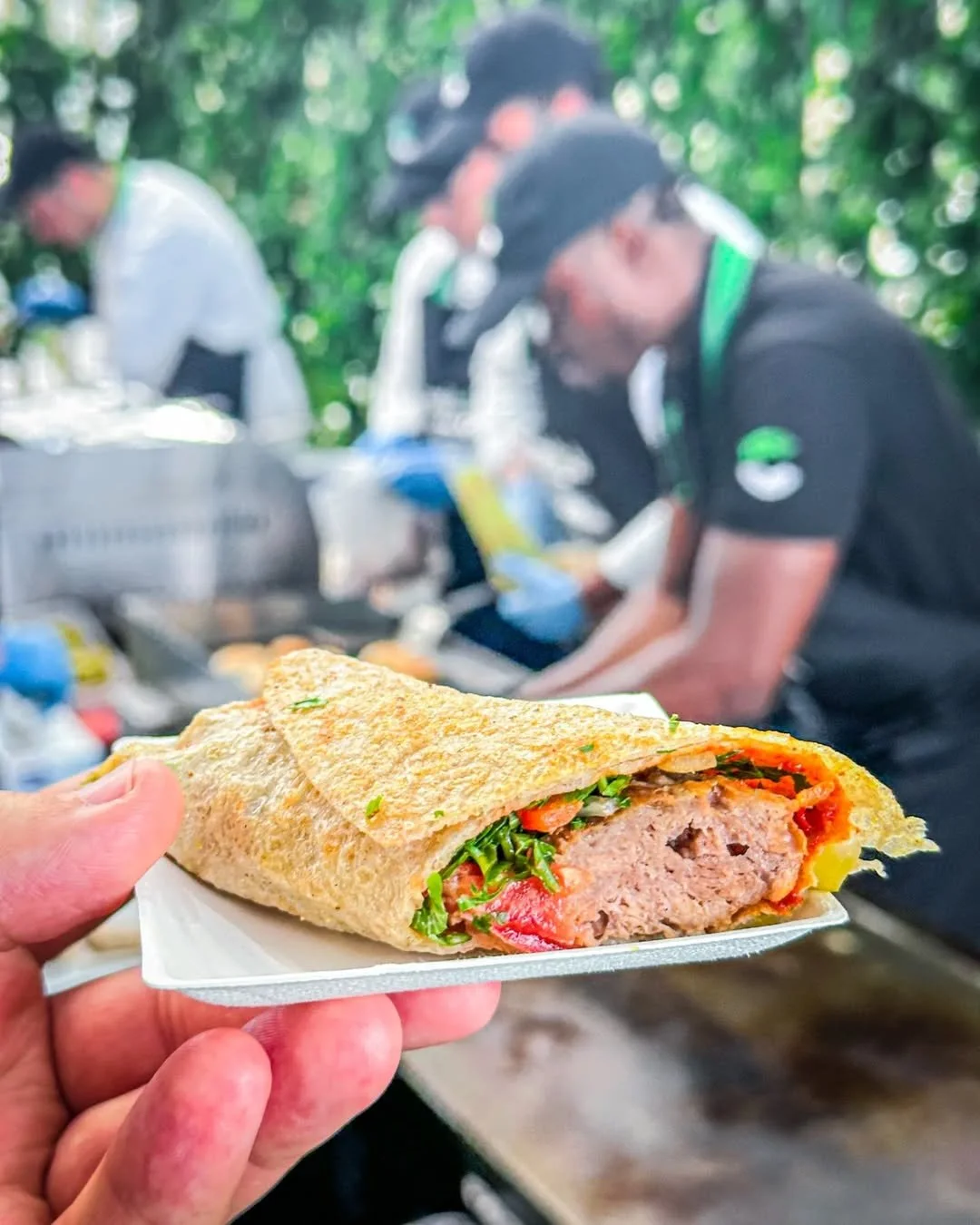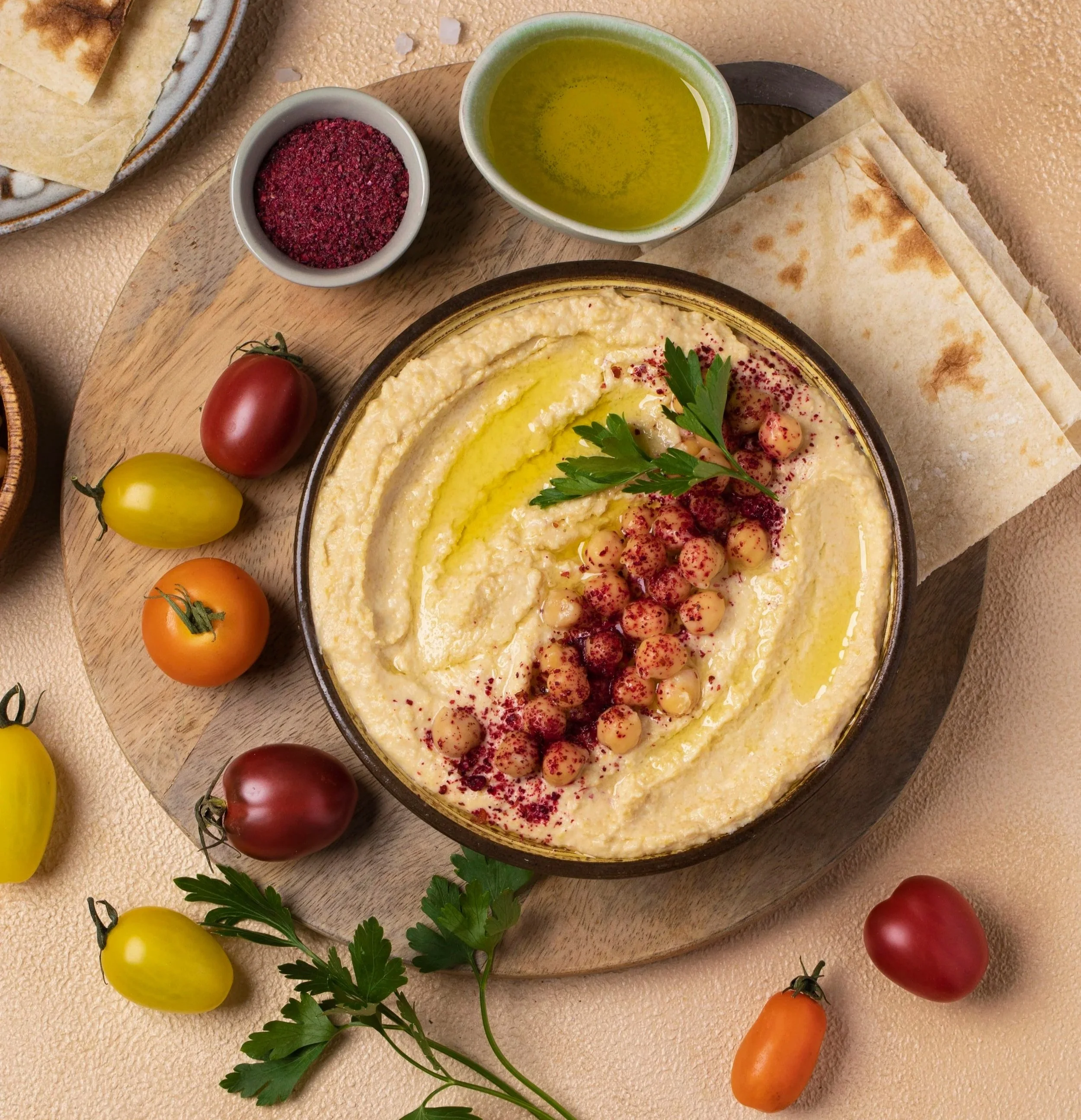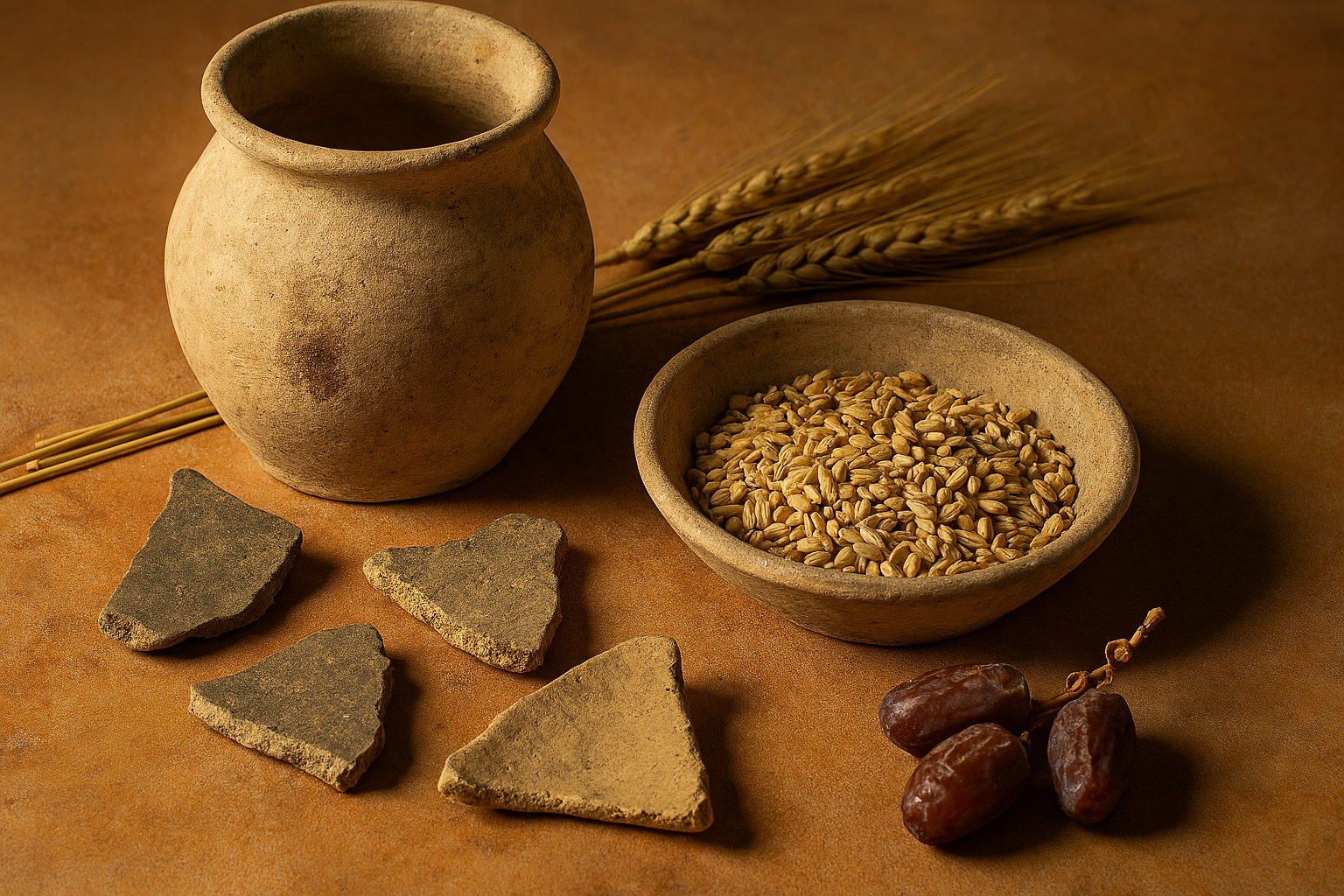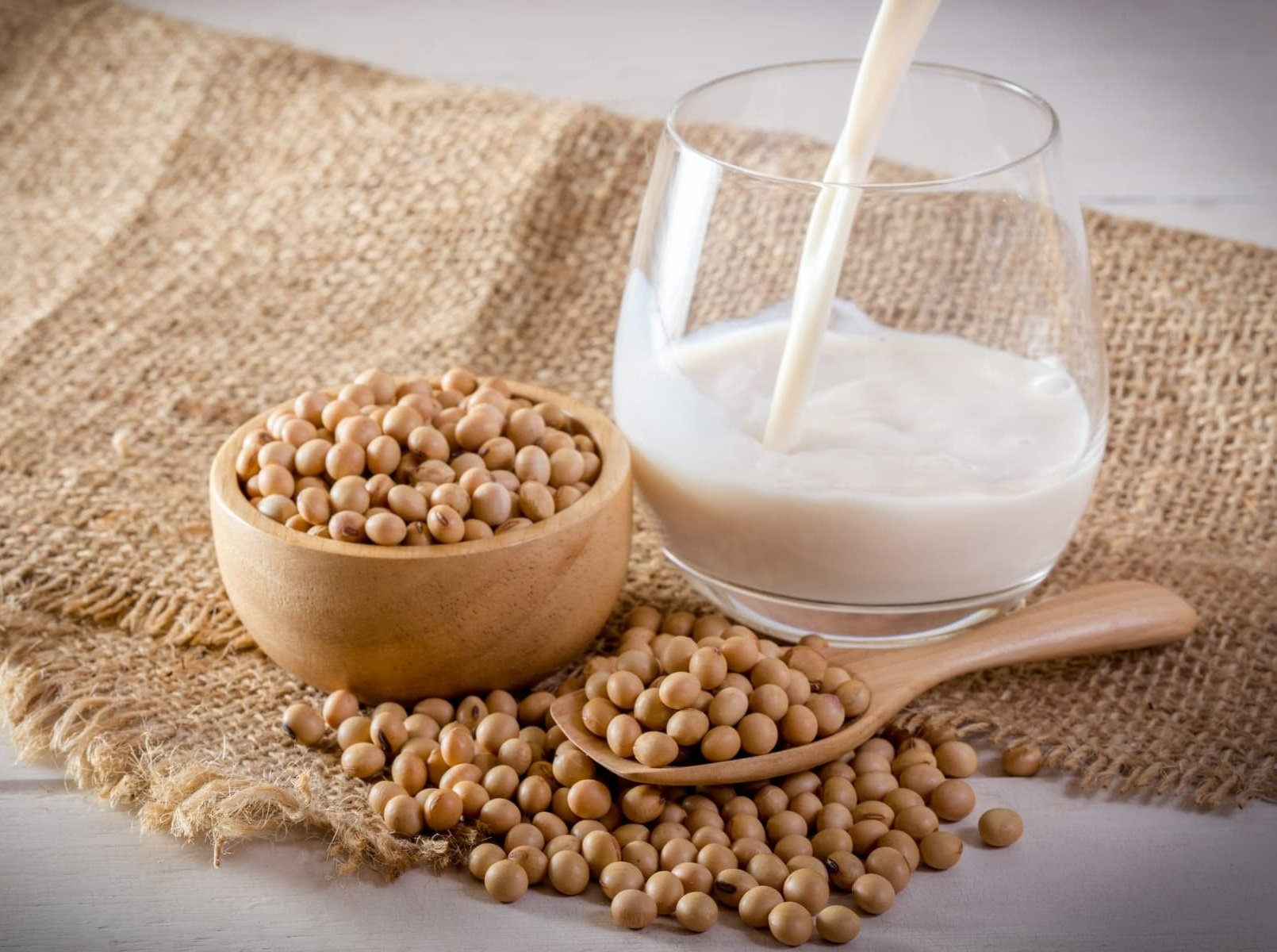
Algae, Lab‑Grown Meat, and Smarter Farms: Shaping the Future of Food in MENA
MENA is entering a moment of transformation, where food is increasingly connected to ideas of health, sustainability, and more mindful consumption. Across the region, new opportunities are opening up: Gulf states are channeling major investments into cultivated meat to meet protein demand ethically, North Africa is expanding aquaculture to deliver sustainable plant‑based protein and strengthen food security, and climate‑smart agriculture is already woven into national strategies. Together, these shifts point toward a future where innovation and responsibility redefine how the region grows and consumes food, creating systems that are efficient, climate‑conscious, and aligned with a vision of healthier diets.

MEA Vegan Baking Ingredients Rise 66% by 2035, Egg Replacers at the Forefront
The vegan baking ingredients market in the Middle East & Africa (MEA) is forecast to expand from USD 25.5 million in 2025 to USD 42.3 million by 2035, marking a 65.9% increase at a CAGR of 5.2%. At the forefront of this expansion are egg replacers & binders, projected as the largest product type segment, reflecting how functional performance and formulation reliability are unlocking mainstream adoption across bakery applications.

Another Peer‑Reviewed Study Shows Vegan Diet Outperforms Mediterranean for Weight Loss
A new study published in Frontiers in Nutrition has found that a low‑fat vegan diet leads to greater weight loss than the Mediterranean diet. Conducted by researchers at the Physicians Committee for Responsible Medicine (PCRM) in Washington, D.C., the randomized, cross‑over trial compared the two diets in overweight adults. The Mediterranean diet, which emphasizes fruits, vegetables, legumes, fish, low‑fat dairy, and olive oil, was long considered a benchmark for healthy eating. The vegan diet, by contrast, excludes all animal products and focuses on fruits, vegetables, grains, and legumes, while limiting oils and nuts. In this study, the vegan diet proved more effective for weight management.

Peer‑Reviewed Study Shows Vegan Diet Equals Mediterranean in Nutrition, Excels in Sustainability
A new peer‑reviewed study published in Frontiers in Nutrition by researchers from the University of Granada and the Spanish National Research Council (CSIC) has confirmed that a well‑planned vegan diet can be nutritionally adequate and comparable to the Mediterranean diet. Importantly, the study also highlights the vegan diet’s environmental advantages, showing that it can dramatically reduce carbon emissions, land use, and water consumption, making it both a healthy and sustainable choice.

Plant-based brand Vegan 2025 Expands Into GCC and Egypt, Valued at $500 Million
Plant-based brand Vegan 2025, now valued at 500 million dollars, is making headlines with its expansion into GCC and Egyptian markets. The company’s rapid growth reflects rising demand for halal-certified, climate-smart, and culturally resonant food choices across the region. Over the past 18 months, Vegan 2025 has achieved a tenfold increase in sales, positioning itself as one of the fastest-growing plant-based brands in the Middle East. Its valuation underscores investor confidence in the future of alternative proteins.

Cruelty-Free and Culturally Rooted: The Vegan Cosmetics Surge in Saudi Arabia
Saudi Arabia is no longer just a consumer of global beauty trends — it’s becoming a regional leader in ethical cosmetics. According to a 2025 market report, the Saudi vegan cosmetics sector is projected to grow from USD 165.28 billion in 2024 to USD 267.98 billion by 2030, driven by a compound annual growth rate of 8.45%.

Mapping the Growth of Vegan Protein in the Arab Region: How Conscious Nutrition is Shaping the Future
Consumers in the Arab region and globally are increasingly seeking proteins from sources such as lentils, chickpeas, fava beans, peas, soybeans, rice, and hemp—not only appealing to vegans but also attracting health-conscious individuals pursuing sustainable, functional nutrition. According to the Middle East & Africa Plant-Based Protein Market Outlook, 2030, the region is blending its rich culinary heritage with modern innovations, positioning itself at the intersection of tradition and transformation.

UAE Clears Path for Cultured Meat Expansion—Regional Market to Hit $74M by 2030
The Middle East’s protein landscape is entering a new phase of innovation and execution. With the UAE scaling cultivated meat infrastructure through its AGWA food-tech hub in Abu Dhabi, the region is positioning itself as a strategic center for ethical, sustainable, and locally driven protein solutions.

Building the Future of Food: How Saudi Arabia’s Vegan Meat, Dairy Alternatives, Luxury, and Biotech Sectors Are Redefining Conscious Consumption
Saudi Arabia’s plant-based transformation is no longer a fringe movement—it’s a multi-sector redefinition of how the Kingdom eats, innovates, and expresses values. From the explosive growth of the vegan meat market to the rise of dairy alternatives, ethical luxury, and biotech infrastructure, the Kingdom is crafting a new identity—one rooted in sustainability, cultural heritage, and conscious innovation.

The Protein Paradox: Tradition vs. Transformation in the Middle East — A Region Caught Between Ritual and Reform
The Middle East is experiencing a profound shift in its food identity. For generations, meat has been more than nourishment—it’s been a symbol of hospitality, religious devotion, and cultural pride. From lamb feasts during Eid to grilled kofta at family gatherings, animal protein is deeply embedded in the region’s traditions. Yet today, a new narrative is emerging—one shaped by growing concerns over climate change, public health, animal welfare, and food security. Sustainability is no longer a fringe concept; it’s a regional priority. Conscious and ethical consumption is gaining traction, especially among younger generations who are questioning long-held assumptions about food and its impact.

Hummus Rising: A Middle Eastern Staple Goes Global — With Tahina Unlocking a Complete Amino Acid Profile
Once a humble mezze dish passed from hand to hand across Levantine tables, hummus is now a global culinary icon — and a quiet nutritional powerhouse. According to recent market analysis, the global hummus industry is projected to reach USD 4.5 billion by 2035, driven by rising health awareness, plant-based diets, and culinary innovation. But for the Middle East Vegan Society, this isn’t just a market trend. It’s a moment of cultural affirmation — and biochemical surprise.

The Gulf’s Plant-Based Rise: Wellness, Innovation, and Culinary Transformation
In 2025, the Gulf’s dining landscape is undergoing a vibrant transformation. From Abu Dhabi to Muscat, consumers are embracing health-driven choices, plant-based innovation, and cutting-edge culinary technology. Plant-based offerings are no longer niche—they’re central to how the region eats, innovates, and redefines luxury.

New Archaeological Research Reveals Bronze Age Plant-Based Diets in the Middle East
New archaeological research from the UAE and Oman is reshaping our understanding of Bronze Age diets—revealing that plant-based eating was far more prevalent than previously believed. For decades, scholars assumed that Bronze Age communities in the Arabian Peninsula relied primarily on meat and dairy. But a recent study led by Dr. Akshyeta Suryanarayan of the University of Cambridge challenges that narrative. Through advanced lipid residue analysis of 179 pottery fragments from sites like Hili 8 and Hili North Tomb A, researchers uncovered chemical traces of plant-derived compounds, including markers from cereals and date palms.

Saudi Arabia’s Protein Bar Boom: A Gateway for Plant-Based Innovation
Saudi Arabia’s wellness revolution is reshaping snack culture — and it’s packed with plant-powered potential. According to IMARC Group’s latest market report, the country’s protein bar market is projected to grow from USD 30 million in 2024 to USD 50 million by 2033, with a steady 4.2% CAGR. But beyond the numbers lies a deeper story: one of cultural evolution, ethical choices, and the rise of vegan nutrition.

A Call from Abu Dhabi: Global Alignment for Alternative Proteins
In her op-ed for The National, Fatima Al Dhaheri, head of the AgriFood Growth and Abundance cluster at the Abu Dhabi Investment Office, confronts a critical impasse in the evolution of food systems. Alternative proteins—plant-based, cultivated, and precision-fermented—offer sustainable solutions to a world choked by climate breakdown and agricultural instability. Yet, instead of accelerating their integration, global regulators have created an obstacle course of inconsistent approvals, high compliance costs, and fragmented market access.

Out of Water, Into Agony: New Study Reveals the Hidden Torment of Fish
By now, most of us understand that animals feel pain. But when it comes to aquatic life, this understanding often dissolves like salt in water. A groundbreaking study published in Scientific Reports has exposed the harrowing reality too often ignored: the prolonged suffering fish endure when pulled from water. Led by Cynthia Schuck-Paim of the Welfare Footprint Institute, the research quantifies what was long felt intuitively by animal advocates. When fish, particularly rainbow trout, are removed from water and left to die by asphyxiation—a common commercial practice—they can experience up to 22 minutes of intense pain.

Research Reveals the Health Benefits of Daily Chickpea & Black Bean Consumption
For centuries, the Middle East has embraced nutrient-rich foods, with chickpeas standing out as a staple. Originating in the Fertile Crescent, they’ve shaped Levantine cuisine, featuring in hummus, falafel, and hearty stews. But beyond their culinary significance, chickpeas have now gained scientific recognition for their cholesterol-lowering and inflammation-reducing properties. At the NUTRITION 2025 conference, scientists from the Illinois Institute of Technology presented findings showing that daily legume consumption—including chickpeas and black beans—can provide measurable health benefits. Their 12-week study on 72 adults with prediabetes tracked the effects of eating one cup of chickpeas, black beans, or rice per day, with striking results.

Plant-Based Revolution in Saudi Arabia: Meat Substitutes Gain Momentum
Saudi Arabia is experiencing a notable shift toward plant-based diets. A recent report on the Saudi Arabia meat substitutes market estimates its value at USD 124.56 million in 2024, with projections to reach USD 168.56 million by 2030, growing at a CAGR of 5.17%. This steady expansion highlights evolving consumer preferences, as more individuals embrace alternative protein sources that promote health, minimize environmental impact, and support ethical consumption values.

The Plant-Based Milk Revolution in Saudi Arabia: Trends, Challenges & Opportunities
Saudi Arabia’s dairy industry is undergoing a significant transformation with the rising demand for plant-based alternatives. As global dietary preferences shift toward sustainability and health-conscious choices, the Saudi market is embracing dairy-free options, presenting immense opportunities for growth

UAE Soy Milk Market: Unprecedented Growth and Promising Future
According to a report published on May 9, 2025, the UAE soy milk market is experiencing remarkable expansion, driven by shifting consumer preferences toward healthier, plant-based alternatives. With rising health awareness, environmental consciousness, and dietary diversification, soy milk has established itself as a leading choice in the non-dairy sector. As demand surges, manufacturers are investing in innovation and market strategies to solidify soy milk’s presence in households, cafes, and retail stores across the region.

